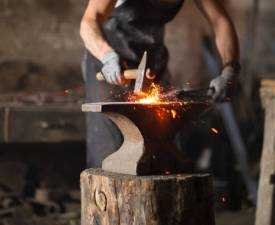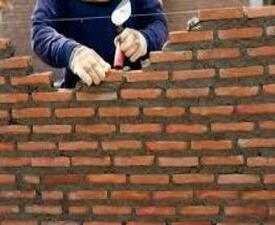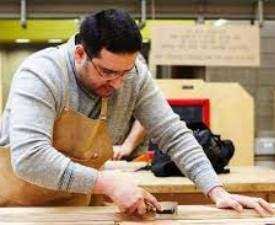Description
Course Duration
-
Total Hours: 100–200 hours (varies by institution)
-
Duration: 3–6 months (part-time/full-time options)
Eligibility
-
No formal education required (open to beginners)
-
Physical fitness for manual labor
-
Interest in metalworking and craftsmanship
Course Modules
1. Introduction to Blacksmithing
-
History and evolution of blacksmithing
-
Tools and equipment (anvils, hammers, tongs, forges)
-
Workshop safety and protective gear
2. Basic Forging Techniques
-
Heating and temperature control
-
Hammering, bending, and twisting metal
-
Drawing out and tapering
3. Joining Metals
-
Basic welding (forge welding, arc welding, MIG/TIG introduction)
-
Riveting and mechanical fastening
4. Shaping & Forming
-
Creating basic shapes (hooks, brackets, nails)
-
Scrollwork and decorative elements
-
Introduction to bladesmithing (knife-making basics)
5. Heat Treatment & Finishing
-
Annealing, hardening, and tempering
-
Grinding, polishing, and patina application
-
Protective coatings (oiling, waxing, painting)
6. Project Work
-
Crafting a final project (e.g., knife, tool, or decorative piece)
-
Portfolio development for professional work
Learning Outcomes
By the end of the course, students will:
✔ Understand blacksmithing fundamentals and tool usage.
✔ Perform basic and intermediate forging techniques.
✔ Create functional and artistic metalwork.
✔ Apply heat treatment for durability.
✔ Follow safety protocols in a workshop.
Career Opportunities
Graduates can pursue roles such as:
-
Professional Blacksmith (artistic or industrial)
-
Metalwork Artist/Scultpor
-
Knifemaker/Bladesmith
-
Farrier (specializing in horseshoes)
-
Restoration Specialist (historical metalwork)
-
Workshop Instructor
Certification
Upon successful completion, students receive a Certificate in Blacksmithing, validating their skills for employment or entrepreneurship.
Additional Notes
-
Hands-on training is emphasized with access to a forge and tools.
-
Some programs offer apprenticeship opportunities.
-
Courses may vary based on specialization (e.g., artistic vs. industrial blacksmithing).




